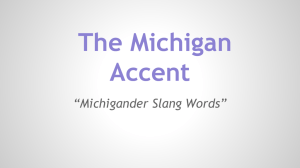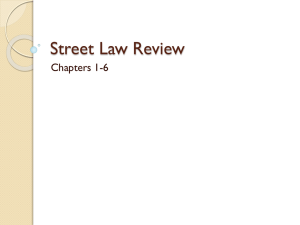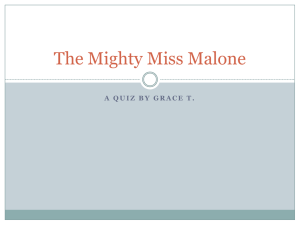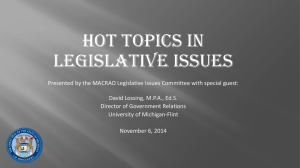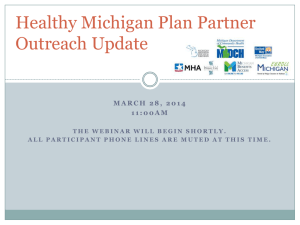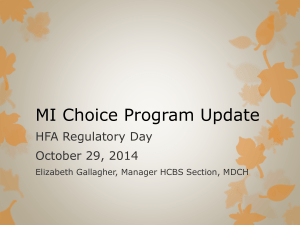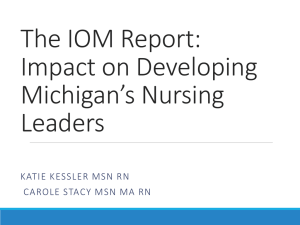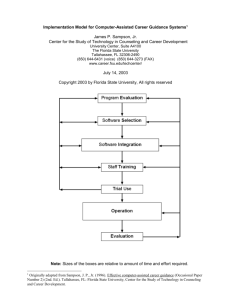College Access Challenge Grant - Michigan College Access Network
advertisement
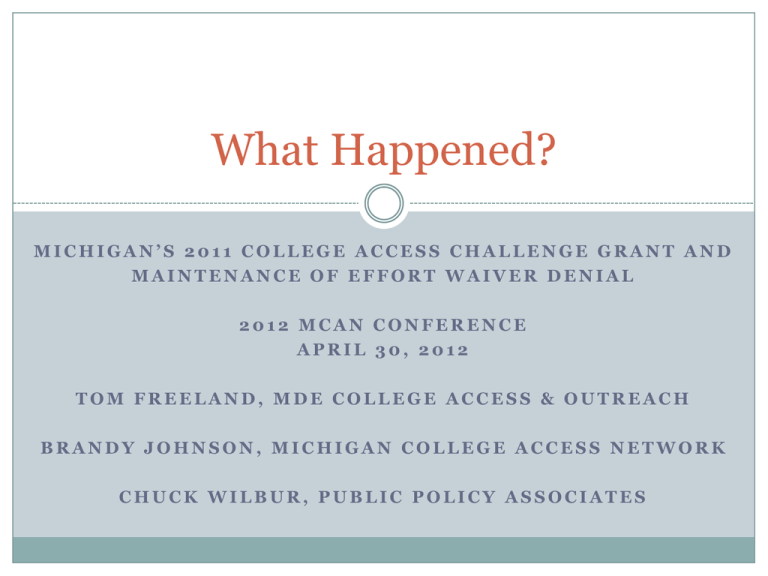
What Happened? MICHIGAN’S 2011 COLLEGE ACCESS CHALLENGE GRANT AND MAINTENANCE OF EFFORT WAIVER DENIAL 2012 MCAN CONFERENCE APRIL 30, 2012 TOM FREELAND, MDE COLLEGE ACCESS & OUTREACH BRANDY JOHNSON, MICHIGAN COLLEGE ACCESS NETWORK CHUCK WILBUR, PUBLIC POLICY ASSOCIATES History of College Access Challenge Grant 2007: President Bush signed the College Cost Reduction and Access Act (CCRAA) into law, amending the Higher Education Act of 1965 Created the College Access Challenge Grant (CACG) program Two year grant block grant program – FY2008 and FY2009 Formula based on number of youth residents and percentage of residents living below the federal poverty line. Total Allocation: $66 million in FY2008 and FY2009 Michigan’s Allocation: $2.1 million in FY2008 and FY2009 2010: President Obama signed the Health Care and Education Reconciliation Act of 2010. Extended the program for FY2010-2014 More than doubled the funding to $150 million per year College Access Challenge Grant Purpose: Foster partnerships among federal, state, and local governments and philanthropic organizations through matching challenge grants that are aimed at increasing the number of lowincome students who are prepared to enter and succeed in postsecondary education. Michigan’s Award: $4,268,548/year in FY10-14 Michigan’s College Access Challenge Grant CACG 1.0 (2008-2010) Major deliverable: Create a community to support greater collaboration among college pathway professionals in Michigan. CACG 2.0 – Year 1 (2010-2011) Major deliverables: MDE College Access and Outreach Unit MichiganCAP Michigan College Access Network Local College Access Networks Grant Programs KnowHow2GO Michigan Michigan Campus Compact College Positive Volunteerism Michigan College Advising Corps Promise Zones Achieving the Dream Maintenance of Effort Requirement Requires states to maintain spending for higher education at least at the average amount spent over the past five years: (a) for public institutions (excluding capital expenses and research and development costs); and (b) for private institutions (as measured by financial aid/scholarships for students attending private colleges). Waiver Authority The Secretary of Education has the authority to waive the MOE requirement if it is determined that such a waiver would be equitable due to exceptional or uncontrollable circumstances, such as a natural disaster or a precipitous and unforeseen decline in financial resources of a State. Michigan’s Maintenance of Effort Waiver Application May 2011 Michigan did not meet Maintenance of Effort in FY 11 State spending on higher education in FY10 was less than previous 5-year average (FY05-09) Michigan applied for a waiver of MOE requirement Michigan’s Waiver Application Denied September 2011 Received letter indicating that Michigan’s CACG MOE waiver was functionally denied. FY11 funds will only be made available to Michigan if it restores $58 million (to get a $4 million grant). In September, 10 other states also had their waivers denied. Secretary Duncan has discretion to reconsider September 2011-Feburary 2012 MCAN began organizing state and national efforts to reverse waiver denial decision Advocacy Efforts Major Philanthropic Organizations Michigan Congressional Delegation Media / Op-Eds Advocacy Talking Points Ask Secretary Duncan to reconsider Michigan’s waiver application Michigan has put its CACG to good use We did not use it to supplant state efforts We leveraged millions of $ in philanthropic support We are helping President Obama and Secretary Duncan reach their 2020 Goal. Michigan did not meet MOE because our state faced “exceptional and uncontrollable” financial circumstances Near collapse of manufacturing industry We are using CACG to mitigate our state’s economic circumstances In theory, Maintenance of Effort provisions in federal legislation is good public policy… Obama’s 2020 Goal State Financial Responsibility: Supplant v. Supplement It worked for other federal education programs …but the implementation of MOE is bad public policy for CACG Counterproductive to Obama’s 2020 goal if funds revert back to Treasury Doesn’t take into account relevant qualitative factors Doesn’t take into consideration how state is using funds (i.e. to mitigate painful cuts) Pushes out philanthropic investments Punishes states who preserved social safety nets Policy lever doesn’t work for a very small program Creates inequities between states Mathematical Strategy U.S. Department of Education used “proportionality” test to determine which states got waivers. MDE worked with State Budget Office to demonstrate that Michigan did not cut higher education spending at a higher level than other state spending with the help of SFSF dollars. Michigan maintained $39 million for private scholarships but used TANF dollars instead of GF. Waiver Request 2.0 In November, Superintendent Flanagan submitted a revised MOE Waiver Application. Key Arguments: Duncan has authority to grant waiver based on our exceptional or uncontrollable economic conditions in FY10. “Proportionality” test had not been communicated to State when FY10 budget was being set. Michigan committed $68 million in SFSF to higher education spending and therefore we met the “public” test. State lawmakers saw GF and TANF as fungible resources 1 of only 5 states that maintain a scholarship program for students attending private institutions. Final Decision In late February, U.S. Department of Education sent Michigan a final determination letter indicated Michigan would not receive a waiver. Three other states (Alabama, Iowa, and Ohio) received a similar letter. Michigan could not overcome “TANF Swap” issue for private Tuition Grant. Still Fighting for Waiver for 2012 If waiver approval process remains the same, Michigan will likely not qualify for one in 2012 or 2013. Members of Congress and National Governors Association have asked U.S. Department of Education to consider modifying waiver process. So far, U.S. Department of Education has not budged Refer to Attachments Original Denial Letter Kresge Letter to Secretary Duncan Michigan Congressional Delegation Letter Follow-up Letter from Superintendent Flanagan to Duncan Op-Ed on CACG MOE Waiver Final Denial Letter Letter from U.S. Senate Questions? Tom Freeland, freelandt@michigan.gov Brandy Johnson, brandy@micollegeaccess.org Chuck Wilbur, cwilbur@publicpolicy.com
